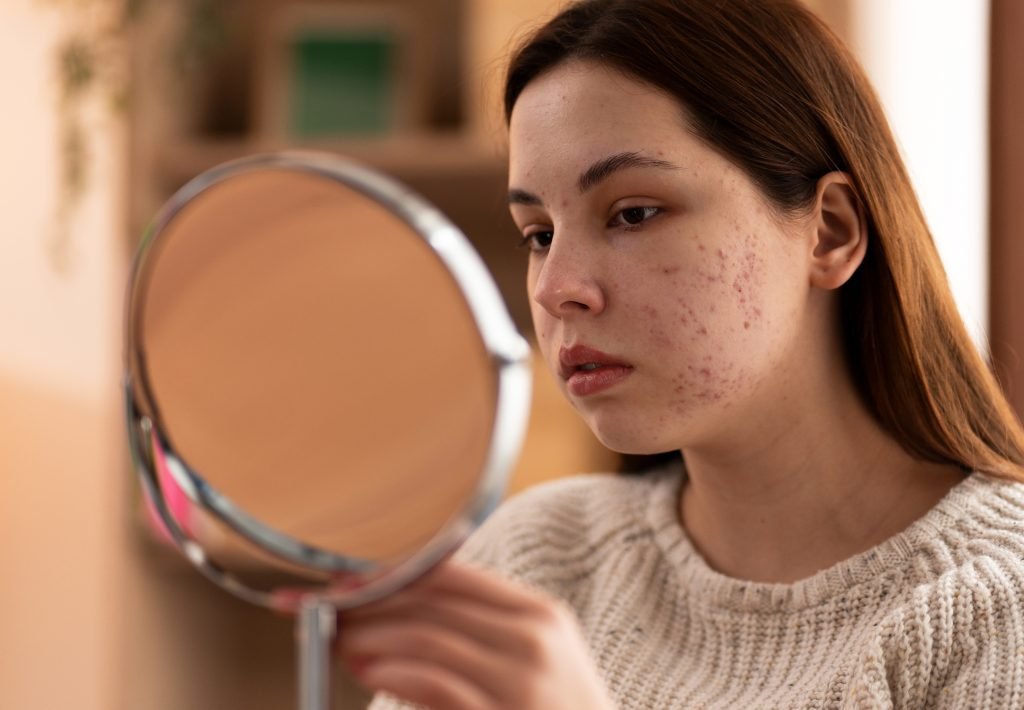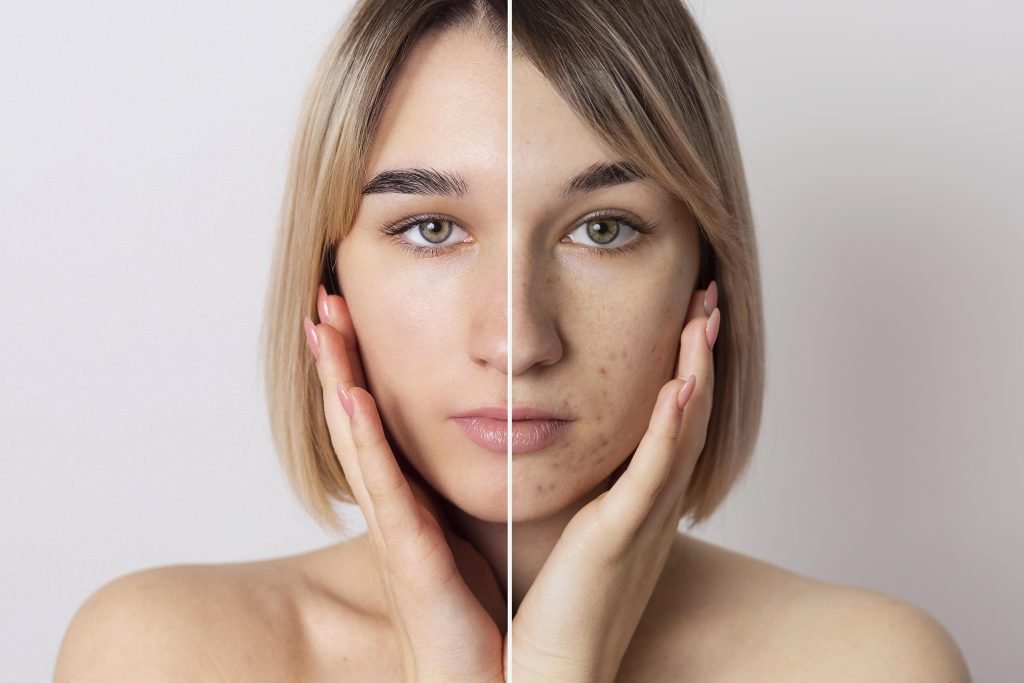Skin Disorder
Skin Disorder Doctor in Indore
The skin, our body’s largest organ, serves as a protective barrier against the environment and plays a crucial role in regulating body temperature and fluid balance. However, this vital organ is susceptible to a wide range of disorders that can affect its appearance, function, and overall health. Skin disorders encompass a broad spectrum of conditions, ranging from minor irritations to severe, life-threatening diseases.
Understanding the complexity and diversity of skin disorders is essential for both patients and healthcare providers. These conditions can significantly impact an individual’s quality of life, self-esteem, and in some cases, overall health. For expert care, consulting a skin care specialist in Indore or a skin treatment doctor in Indore can provide accurate diagnosis and effective treatment options to help manage and improve skin health.

BEST SKIN SPECIALIST NEAR YOU
Common Types of Skin Disorders
Skin disorders manifest in numerous forms, each with unique characteristics and treatment requirements. Some of the most prevalent skin disorders include:
Acne
A common condition affecting the oil glands and hair follicles
Eczema (Atopic Dermatitis)
Characterized by dry, itchy, and inflamed skin
Psoriasis
An autoimmune condition causing rapid skin cell turnover
Rosacea
A chronic inflammatory condition affecting the face
Skin Cancer
Including melanoma, basal cell carcinoma, and squamous cell carcinoma
Contact Dermatitis
Skin reactions caused by contact with irritants or allergens
Fungal Infections
Such as athlete's foot and ringworm
Vitiligo
A condition causing loss of skin pigmentation
Hives (Urticaria)
Itchy, raised welts on the skin
These disorders vary in severity and duration, with some being acute and others chronic, requiring long-term management.
Causes and Risk Factors
- Genetic Predisposition: Many skin conditions have a hereditary component.
- Environmental Factors: Exposure to sunlight, pollutants, or harsh chemicals can trigger or exacerbate skin problems.
- Immune System Dysfunction: Autoimmune disorders can manifest as skin conditions.
- Infections: Bacterial, viral, or fungal infections can lead to various skin issues.
- Hormonal Changes: Fluctuations in hormones can affect skin health, particularly evident during puberty, pregnancy, and menopause.
- Stress: Psychological stress can trigger or worsen certain skin conditions.
- Lifestyle Factors: Diet, smoking, and alcohol consumption can influence skin health.
- Medications: Some medications can cause skin reactions as side effects.
Diagnosis of Skin Disorders
- Detailed Medical History: Including family history, exposure to potential triggers, and onset of symptoms.
- Physical Examination: A thorough inspection of the affected skin areas.
- Skin Biopsy: Taking a small sample of skin for microscopic examination.
- Patch Testing: To identify allergic reactions to specific substances.
- Blood Tests: To check for underlying systemic conditions or infections.
- Imaging Studies: In some cases, to assess the extent of the condition.
Treatment Approaches
- Topical Medications: • Corticosteroids for inflammation • Retinoids for acne and aging skin • Antifungal creams for fungal infections • Moisturizers for dry skin conditions
- Systemic Medications: • Antibiotics for bacterial infections • Antihistamines for allergic reactions • Immunosuppressants for autoimmune skin disorders
- Phototherapy: • UV light treatment for conditions like psoriasis and vitiligo
- Laser and Light Therapies: • For various cosmetic and medical skin conditions
- Surgical Interventions: • Excision of skin cancers • Dermabrasion for scars and aging skin
- Lifestyle Modifications: • Stress reduction techniques • Dietary changes • Sun protection measures
- Alternative Therapies: • Acupuncture • Herbal remedies (under medical supervision)

Living with Skin Disorders
- Social stigma and self-esteem issues
- Discomfort and pain associated with symptoms
- Frustration with chronic or recurrent conditions
- Financial burden of long-term treatments
Prevention and Skin Health Maintenance
- Practicing good skin hygiene
- Using appropriate sun protection
- Maintaining a balanced diet rich in antioxidants
- Staying hydrated
- Managing stress through relaxation techniques
- Avoiding known irritants and allergens
- Regular skin self-examinations
- Seeking prompt medical attention for new or changing skin lesions
Emerging Treatments and Research
- Biological therapies targeting specific immune pathways
- Gene therapy for genetic skin disorders
- Advanced wound healing technologies
- Personalized medicine approaches based on genetic profiling
- Nanotechnology in skincare and drug delivery
Skin disorders are diverse and can significantly affect an individual’s health and quality of life. Understanding their causes and treatment options is essential for effective management. For expert care in Indore, consult the best skin specialist in Indore at leading healthcare institutions to access advanced diagnostic tools and treatment methods. Prioritizing skin health is key to maintaining both physical and emotional well-being.
If you’re also concerned about your kidney health, early detection and intervention are crucial. Consulting a reliable healthcare provider like the best general physician in Indore ensures you take proactive steps towards managing your health.
Amenities
Medical science is a field that deals with the diagnosis.
Qualified Doctors
Emergency Help
Modern Equipment
Faqs About
Skin Disorder
Acne, eczema, psoriasis, vitiligo, fungal infections, and more.
Visit the website or call the clinic to schedule a consultation.
stress, depression and other kinds of psychological problems can exacerbate the skin problems
For expert care with personalized treatment, search for skin treatment near me to find trusted specialists offering advanced solutions for your skin health.


